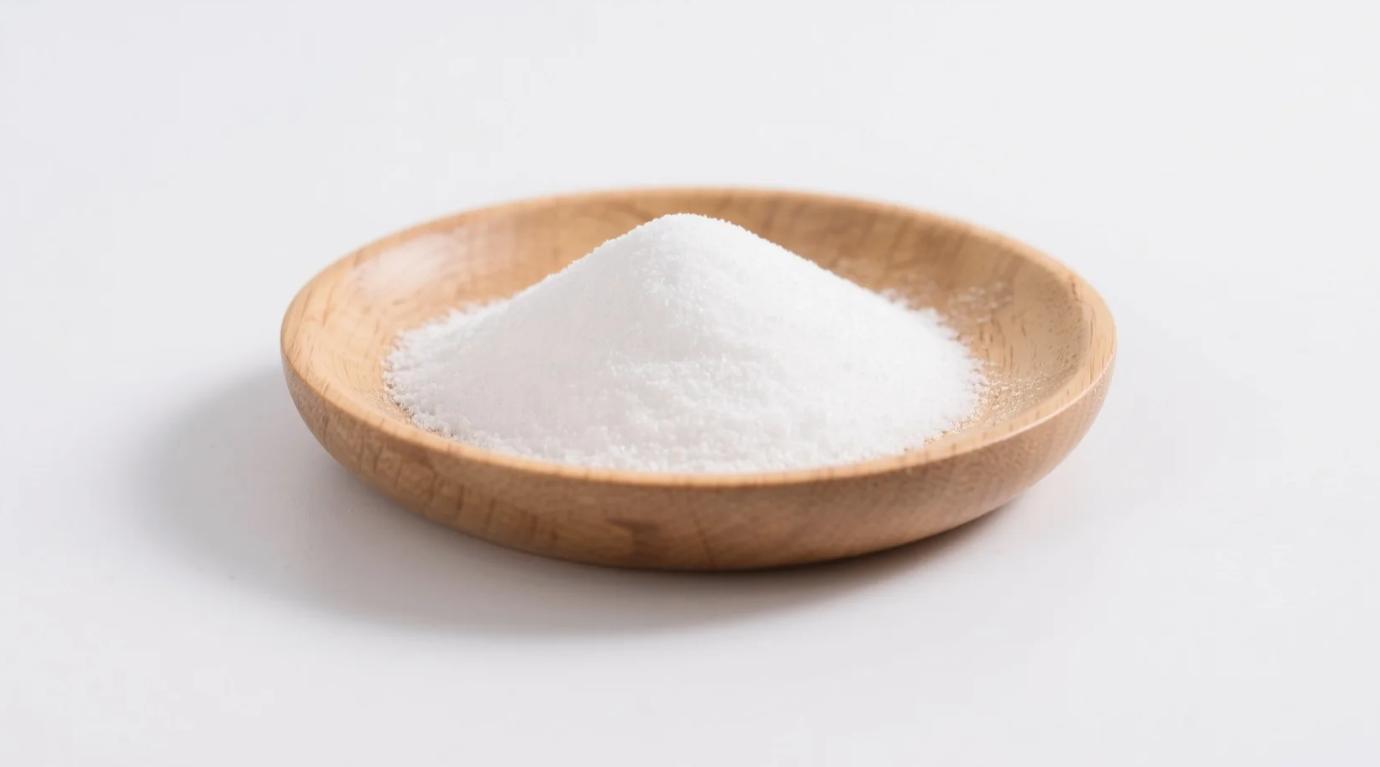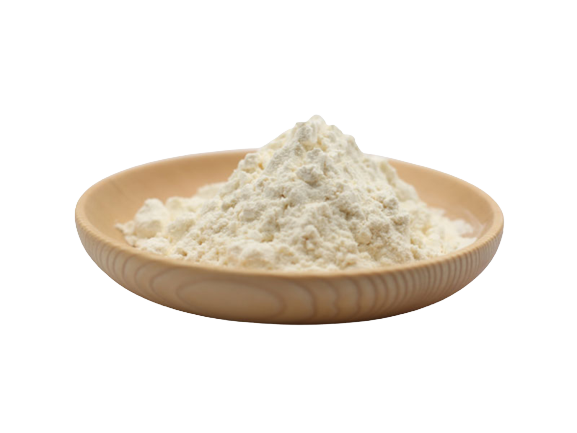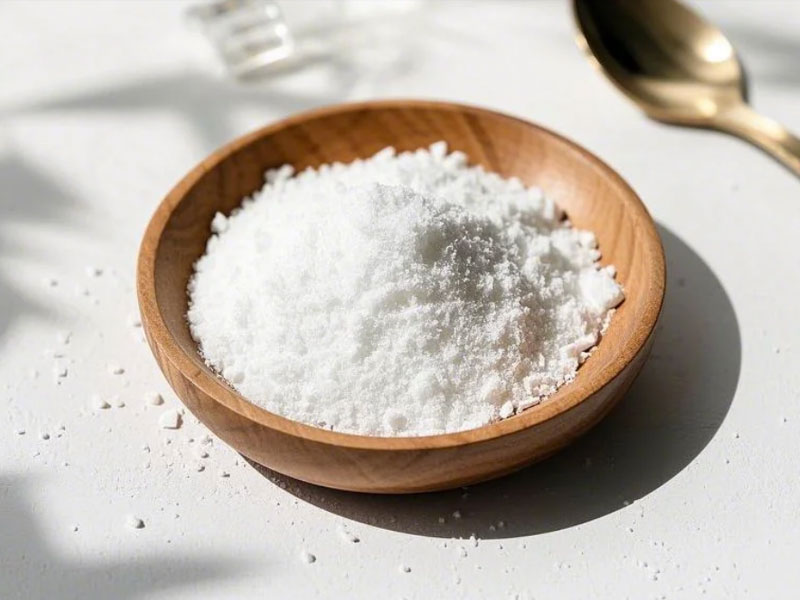In the global beverage industry, reducing sugar has become one of the most critical priorities. Health-conscious consumers are actively seeking low-calorie, natural, and clean-label drinks, while manufacturers struggle to maintain sweetness, mouthfeel, and taste quality when removing sugar.
Organic allulose, a rare natural sweetener, has emerged as a revolutionary ingredient for beverage manufacturers aiming to cut sugar without compromising sensory experience. It provides sugar-like sweetness, functional stability, and organic certification, making it ideal for a new generation of better-for-you beverages.
What Is Organic Allulose?
Organic allulose (also known as D-psicose) is a naturally occurring rare sugar found in small quantities in fruits like jackfruit and figs. It has about 70% of the sweetness of sucrose but provides only 0.2–0.4 kcal per gram — nearly zero calories.
Produced through an enzymatic conversion of organic fructose, organic allulose powder and syrup offer natural origin, excellent solubility, and clean sweetness, perfectly suited for beverage applications.
The Sugar Reduction Challenge in Beverages
Reducing sugar in beverages is not as simple as replacing sweetness. Sugar influences viscosity, mouthfeel, browning, and overall flavor balance. Traditional artificial sweeteners (like sucralose or aspartame) often leave an unpleasant aftertaste, while sugar alcohols (like erythritol) may cause cooling effects or digestive issues.
Organic allulose, however, provides a unique balance of sweetness and body — replicating sugar’s sensory experience while maintaining a clean label.
Advantages of Organic Allulose in Beverage Formulation
1. Sugar-Like Sweetness and Taste
Organic allulose mimics the taste profile of sucrose, offering natural sweetness without bitterness or lingering aftertaste. This helps manufacturers achieve a satisfying flavor profile in low-calorie drinks.
2. Low Glycemic Impact
Allulose has a minimal effect on blood glucose levels, making it suitable for diabetic-friendly, keto, and low-carb beverages. Consumers can enjoy sweetness without worrying about sugar spikes.
3. Functional Stability
It remains stable under heat and acidic conditions, ideal for pasteurized, carbonated, or functional beverages. Unlike some natural sweeteners, it doesn’t degrade or produce off-flavors over time.
4. Excellent Solubility and Mouthfeel
Organic allulose dissolves easily and contributes to a smooth, full-bodied texture, ensuring the beverage maintains a rich mouthfeel even with reduced sugar content.
5. Organic and Clean-Label Benefits
Made from organic sources and free from artificial additives, it aligns perfectly with consumer demand for natural and sustainable products.
Applications in Beverage Categories
| Beverage Type | Application | Functional Role of Organic Allulose |
|---|---|---|
| Functional Drinks | Vitamin water, electrolyte beverages | Provides sweetness, enhances flavor delivery |
| Carbonated Drinks | Low-calorie sodas, sparkling water | Adds natural sweetness without aftertaste |
| Juices & Smoothies | 100% fruit-based beverages | Reduces calorie load while maintaining body |
| Dairy & Plant-Based Drinks | Yogurt drinks, oat milk, soy milk | Improves texture, reduces added sugar |
| Energy & Sports Drinks | Pre/post-workout formulas | Offers fast sweetness with minimal calories |
| RTD Coffee & Tea | Low-sugar formulations | Balances flavor while maintaining clean taste |
B2B Benefits for Beverage Manufacturers
- Regulatory Compliance: Organic allulose is recognized as Generally Recognized as Safe (GRAS) by the U.S. FDA and permitted in major markets.
- Formulation Flexibility: Available in both powder and syrup forms, it fits seamlessly into a wide range of beverage processing systems.
- Improved Market Positioning: “Organic,” “Low Sugar,” “Diabetic-Friendly,” and “Natural Sweetener” claims appeal strongly to modern consumers.
- Consumer Trust: Unlike synthetic options, allulose is naturally derived and sustainably produced, increasing transparency and trust.
- Cost Efficiency: Blending allulose with stevia or monk fruit allows manufacturers to achieve target sweetness levels while managing costs.
Case Example: Organic Allulose in a Functional Beverage
A European beverage brand aimed to reformulate its fruit-based energy drink to reduce sugar by 40% without losing taste or texture. By replacing sucrose with organic allulose syrup, the company achieved:
- Comparable sweetness intensity and balance
- Stable flavor and shelf-life performance
- Lower calorie content (−38%)
- Full organic and clean-label compliance
The reformulated product received strong consumer feedback, highlighting superior taste and light sweetness, and contributed to a 15% sales increase within six months.
Why Choose BIOSTARCH as Your Supplier
At BIOSTARCH, we specialize in supplying premium-grade organic allulose powder and syrup for beverage applications. Our products are:
- Certified organic (USDA, EU)
- Non-GMO and allergen-free
- Highly soluble with consistent sweetness
- Available in bulk for industrial production
We partner with beverage manufacturers worldwide to support low-sugar innovation with technical expertise, stable supply, and sustainable sourcing.
Organic allulose empowers beverage manufacturers to create naturally sweet, low-calorie, and great-tasting drinks that meet the growing demand for health-conscious options. With its clean-label appeal and superior performance, it’s redefining how the beverage industry approaches sugar reduction.
Related Products
Organic Fructose
Dual-Format Natural Sweetener for Clean-Label & Low-Glycemic Formulations
Organic Monk Fruit Extract Powder
Zero-Calorie Natural Sweetener for Clean-Label Food, Beverage & Supplement Applications
Organic Allulose Sweetener
Zero-Calorie, Natural Sweetener for Clean-Label Food, Beverage & Keto Formulations



